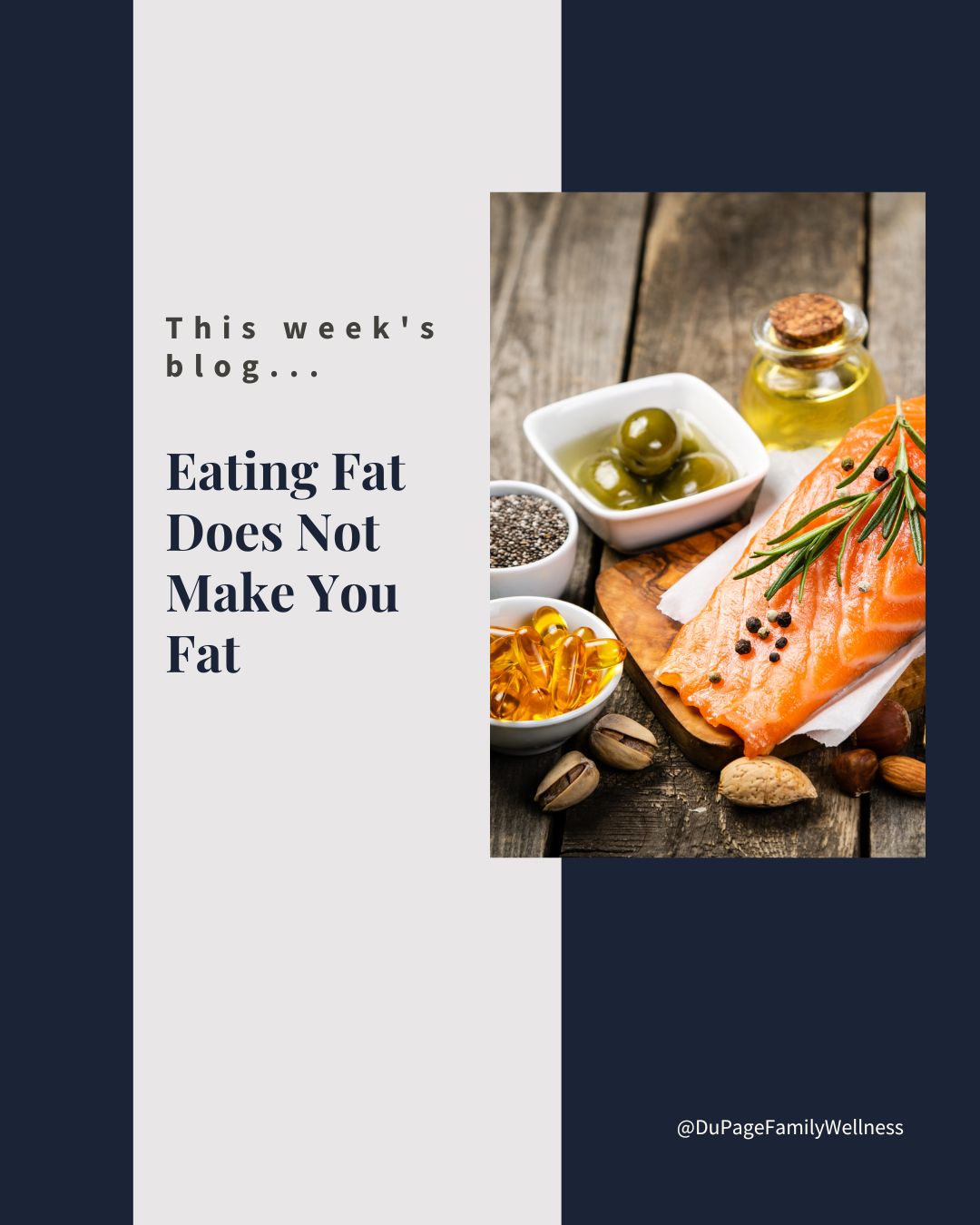 Antelopes rarely suffer long-term damage if they escape the pursuit of a tiger. This may be due to a wild animal's ability to complete the body’s stress cycle, so they do not get stuck in a stress response.
Antelopes rarely suffer long-term damage if they escape the pursuit of a tiger. This may be due to a wild animal's ability to complete the body’s stress cycle, so they do not get stuck in a stress response.
Humans also experience intensely stressful events, though it may not be the pursuit of a predator. Sometimes we don’t complete the body’s stress cycle and get stuck in a stress response. This impacts both our physical and emotional health.
Let’s figure out what your “tigers” are and how to get out of the stress response.
Nervous System’s Design
A mammal's nervous system is designed to go into a fight-flight-freeze response in times of danger. The heart rate, blood pressure, and respiration rate increase to get more oxygen to the muscles and brain. Muscles tense to prepare for action, eyes dilate for better vision, and digestion slows down to focus on immediate survival.
These protective responses are automatic and provide the best chance for survival, but it is important to complete the cycle. Doing so allows you to release the stress hormones in the body, allowing the nervous system to return to a balanced state.
Trauma specialist Peter Levine explains that trauma happens when the body is “unable to complete a satisfactory fight, flight, or freeze response.”
A Polar Bear’s Response
Levine describes a situation where trackers pursued and tranquilized a polar bear. The bear ran in an attempt to get away before the medicine overpowered it. Once the bear was cared for and started to regain consciousness, it began to shake intensely. Its legs thrashed while it made biting movements over its shoulder. Then it began to gasp deeply and entered a freeze state.
The event had a clear beginning and an end. After the experience, the animal established a sense of safety. Its nervous system returned to a balanced state. It did not stay in a stress response and wasn’t plagued by thoughts of worry.
What is Your Tiger?
I doubt you will be chased by a tiger or tracker on the way home from work today, but other things can cause your body to sense danger. Trouble at work, tensions at home, difficult relationships, health concerns, and financial burdens are some of the difficult situations we may face. The problem with these “tigers” is that the pursuit may not have a clear beginning or end. We can get stuck in a stress response when we don’t complete the stress response cycle.
In acutely dangerous situations, people are often prevented from defending themselves or getting away from the danger. This can prevent survivors from completing the stress response cycle, resulting in trauma being trapped in the body. New therapies are beginning to address the impact emotional trauma and the body have on each other. They can allow survivors to complete the stress response cycle and alleviate some aspects of suffering.
Completing the Cycle
Many things can prevent us from moving through the stress response cycle. Isolation and our society's insistence on "keeping our emotions in check" certainly do not help.
In their book Burnout: The Secret to Unlocking the Stress Cycle, Amelia and Emily Nagoski recommend looking to our distant ancestors for ideas. Some things they likely used to recover from stress were…
- Movement - find movements you enjoy, tense and relax your muscles, go for a jog, or shake your body.
- Safety - get to a safe environment, connect with others, or accept physical comfort if you enjoy touch.
- Sleep - restore your body through restful moments and sleep.
- Creativity - make something inspiring or use your imagination.
- Nature - spend time with a pet, sit outside, or go for a walk.
- Laughter - doing this with others is especially powerful.
- Breathing - calm down your vagus nerve through breathing exercises.
- Crying - don’t fight the tears; letting them out releases pent-up emotion
Chronic stress feeds into all sorts of health concerns. If you need help coming up with ways to deal with stress, bring it up at your next appointment.
Dr. Jamie
 When you reach for food to fill an emotional need rather than a physical one, it is called emotional eating. It is a self-soothing technique that numbs feelings of sadness, anxiety, loneliness, anger, or boredom.
When you reach for food to fill an emotional need rather than a physical one, it is called emotional eating. It is a self-soothing technique that numbs feelings of sadness, anxiety, loneliness, anger, or boredom.
Sweet or salty tastes can distract from difficult emotions and affect the chemicals in your body. For example, sugar causes your brain to produce a surge of dopamine. It is known as the feel-good hormone in the body and brings a temporary feeling of relief or delight.
Emotional eating doesn’t effectively deal with the underlying emotions. It can lead to feelings of regret, and indulging in it often may create unintended health consequences.
Let's look at how to recognize emotional eating and better ways to soothe yourself
Notice Emotional Eating
Cultivate self-awareness by listening to your body. Before you eat, ask yourself how you feel (sad, lonely, angry, bored). If you are experiencing a difficult emotion, notice if you are trying to meet an emotional or physical need.
Mayo Clinic explains that generally…
- Physical hunger comes on gradually after a period of not eating. Emotional hunger can come on suddenly, even if you have eaten recently.
- Physical hunger is felt in the stomach. Emotional hunger is felt in the mind.
- Physical hunger often builds gradually. Emotional hunger demands an immediate response.
- Physical hunger can be satisfied with a variety of options. Emotional hunger feels like it can only be satisfied with a specific type of food.
- Eating for physical reasons ends up leaving you satisfied. Emotional eating may make you feel ashamed.
A Conscious Decision
Knowing your motivation is the first step in choosing your response intentionally. You may decide to eat even if you realize you are not physically hungry. That is okay; just be aware of what you are experiencing and celebrate that you are doing it consciously.
Emotional eating may be a tool you learned to keep you safe from emotions that feel too uncomfortable. There are ways to deal with difficult emotions that don't involve emotional eating, but it can take time. Be kind to yourself in the process.
Here are some strategies to do instead of emotional eating…
- Distract yourself - watch a show, read a book, or engage in a hobby.
- Remove yourself from the situation - leave the room, go for a walk, or take a drive.
- Reach out to a friend - call, text, or visit a friend.
- Lean into the difficult emotion - let it wash over you, knowing it is temporary.
- Do self-care - journal, create something artistic, or enjoy some tea.
- Rest - nap if you are tired, or sit outside for a minute.
- Exercise - even gentle movement can be beneficial.
- Practice mindfulness - practice deep breathing or choose a self-compassion exercise.
I'm here to talk with you about anything to do with your health, so bring this up at your next appointment if you want to explore this issue more.
Dr. Jamie
 Cavemen never went to the gym, but they got plenty of exercise. Movement was incorporated into their lives because their survival depended on it. Hunting required fast, agile movements and endurance to outlast prey. Once secured, they had to carry it to the village and process it manually.
Cavemen never went to the gym, but they got plenty of exercise. Movement was incorporated into their lives because their survival depended on it. Hunting required fast, agile movements and endurance to outlast prey. Once secured, they had to carry it to the village and process it manually.
The human body is designed to run, lift, throw, and push things. Movements that functionally engage multiple muscle groups are more natural movements. Unfortunately, our modern society limits our need for this type of movement.
When we go to the gym to work out, we have access to machines that can be used for a "full-body" workout. However, many of these machines isolate muscle groups to strengthen them. Isolating specific muscles unnaturally may create imbalances that can cause pain and overuse injuries.
Our body is not intended to endure repetitive movements on workout equipment in a gym. Moving your body as a whole will provide a better, well-balanced workout that gives you better long-term results.
Let’s learn from cavemen and benefit from functional movement today.
How to Move More Like a Caveman
Years ago, a huge tree branch fell in my parents' yard. It's hard to see, but this is me lifting it over my head. It used all my muscles, making it a full-body functional movement. The following are some functional movements that will get you moving more naturally.
Upper Body
- Push - This can be as simple as push-ups if you are at home with no equipment. If you do have equipment, you can do a bench press, a band press, or my favorite at the gym is to use the cable pulley machine to do a pushing motion. If those sound too difficult, a wall push-up can be an easy place to start.
- Pull - If you are at the gym, you can use the seated row machine or the cable pulley machine to do an upper body pulling motion. Another option here would be to use a dumbbell or kettlebell for a bent-over row. At home, exercise bands can be a great option for doing a pulling motion.
- Overhead press - Here, use light dumbbells for an overhead press or a band (or my tried and true cable pulley machine with the pulley in the lowest position so the angle of my press is as upward as possible)
- Overhead pull - At the gym, you can use the lat pull-down machine, or you can use a pulley machine or pull a band with a downward motion. If you have a bar, this can be a pull-up. If you can't do a pull-up, you can use a band or chair to hold some of your weight.
Lower Body
- Squat (standing from seated) - This can be done as simply as standing up from a chair or bench (air squats), or with weight (using a bar on the shoulder for back squat, or dumbbells or kettlebells in hand)
- Deadlift (picking things up off the ground)- with a barbell, dumbbell, or kettlebell
Read more ...
 It's time to heat the grill. As the weather gets nice, it's a great time to cook and eat outside. It gets you in the fresh air and makes clean-up a snap.
It's time to heat the grill. As the weather gets nice, it's a great time to cook and eat outside. It gets you in the fresh air and makes clean-up a snap.
Grilling out doesn’t have to involve a time-consuming recipe. In fact, simple recipes are often better.
Meat and veggies can make a delicious meal on their own; add grilled fruit, and you have a yummy dessert. Eating these simple, real foods is a healthy option for a dinner everyone will love.
Here are my top grilling tips you can enjoy this summer.
Protein
Start planning your meal by choosing quality meat. With most food, there is a spectrum of quality. You may not be able to get the highest quality; just do your best with the options available!
Let’s see what to look for when buying your meat...
- Good - Unbreaded meat without sugary or processed sauces. (Note: The first ingredient in many BBQ sauces is high fructose corn syrup.)
- Better - Meat from a healthy animal that had a chance to move around and eat its natural diet. (Look for words like pasture-raised chicken, grass-fed beef, or wild-caught fish.)
- Best - Meat from a local farmer’s market where you can meet the farmer and ask how they raise the animals.
Grill the meat and keep it simple! You don't need to add much to good-quality meat; the flavor will be great on its own.
Veggies
It's easy to buy the same veggies each time we shop, but we tend to eat more when we have a variety. Choose a few new ones to throw on the grill this week. Some of my favorites are...
- Eggplant - cut it into ½ - 1 inch patties.
- Asparagus - bend the stalk to snap off the thick base, leaving the pretty flowery end.
- Zucchini - slice into ¼ - ⅓ inch slices.
- Onions - cut them in half (or smaller for kebabs)
- Bell Peppers - cut for kebabs.
- Mushrooms - portabellas are a good size for the grill (smaller ones are great in a grill veggie tray or on a kebab)
- Cauliflower - remove the green leaves and cut into large “steaks” that are ½ - ¾ inch thick.
- Acorn Squash - cut it in half, scrape out the sides, and grill it face down. (top with butter after cooking)
- Yellow Squash - slice into ¼ - ⅓ inch patties.
- Carrots - peel and throw the whole carrot on the grill
You can also make foil packets to combine a variety of vegetables. Cut them into pieces and mix with some fat (i.e. coconut oil or ghee) and seasonings. You can wrap them in foil and place them on the grill. The smaller you dice them, the faster they will cook.
Dessert
Peaches, pineapples, and pears are some of my favorite grilled fruits. They make an easy and tasty dessert!
Read more ...

Many of us were taught that eating fat would make us gain weight. We were never told that we need good fats in our diet to be healthy. Healthy fats help us feel full, stabilize blood sugar, maintain energy, and are essential in the body's production of hormones.
Since your body cannot make several of the necessary essential fatty acids, they must come from your diet. Without these nutrients, you may struggle with inflammation, fatigue, poor memory function, heart issues, depression, dry skin, and many other unpleasant symptoms.
Let's consider if you are eating enough of the RIGHT types of fats.
Healthy Fats vs. Unhealthy Fats
Eating enough fat is incredibly important, but eating the RIGHT kinds is the key! There is a big difference between good, natural, unprocessed, unrefined sources of fat and highly processed, refined fats.
Healthy fats should be incorporated into your diet every day. On the other hand, processed and refined fats are considered “junk calories.” These unhealthy fats can be oxidized or rancid. They are unrecognizable to our bodies and contribute to a host of health problems.
Good Healthy Fats
These foods contain GOOD Fats. Enjoy eating these frequently without guilt!
- Avocados
- Olives
- Ghee
- Butter (I especially love Kerrygold)
- Plain Yogurt (Full fat)
- Avocado Oil
- Coconut Oil
- Olive Oil
- Nuts
- Fish (salmon, herring, anchovies, and sardines)
- Grass Fed Beef
- Dark Meat (from free-range poultry)
- Animal Fat (lard, beef tallow, duck fat, etc.)
- Eggs (especially from pastured chickens)
*It is important that any animal product comes from healthy animals that got to eat their natural diets while they were alive.
Not-So-Healthy Fats
Reading labels will be important when trying to limit or eliminate unhealthy fats. They hide in processed foods such as chips, crackers, and baked goods. Look for oils such as...
- Safflower oil
- Sunflower oil
- Soybean oil
- Canola oil
- Corn oil
- Vegetable oil
- Margarine
- Crisco
- Peanut oil
- Wheatgerm oil
- Cottonseed oil
- Grapeseed oil
- Rice Bran oil
- Anything hydrogenated, or partially hydrogenated
Read more ...
 Antelopes rarely suffer long-term damage if they escape the pursuit of a tiger. This may be due to a wild animal's ability to complete the body’s stress cycle, so they do not get stuck in a stress response.
Antelopes rarely suffer long-term damage if they escape the pursuit of a tiger. This may be due to a wild animal's ability to complete the body’s stress cycle, so they do not get stuck in a stress response. 

 When you reach for food to fill an emotional need rather than a physical one, it is called emotional eating. It is a self-soothing technique that numbs feelings of sadness, anxiety, loneliness, anger, or boredom.
When you reach for food to fill an emotional need rather than a physical one, it is called emotional eating. It is a self-soothing technique that numbs feelings of sadness, anxiety, loneliness, anger, or boredom.  Cavemen never went to the gym, but they got plenty of exercise. Movement was incorporated into their lives because their survival depended on it. Hunting required fast, agile movements and endurance to outlast prey. Once secured, they had to carry it to the village and process it manually.
Cavemen never went to the gym, but they got plenty of exercise. Movement was incorporated into their lives because their survival depended on it. Hunting required fast, agile movements and endurance to outlast prey. Once secured, they had to carry it to the village and process it manually.  It's time to heat the grill. As the weather gets nice, it's a great time to cook and eat outside. It gets you in the fresh air and makes clean-up a snap.
It's time to heat the grill. As the weather gets nice, it's a great time to cook and eat outside. It gets you in the fresh air and makes clean-up a snap.
